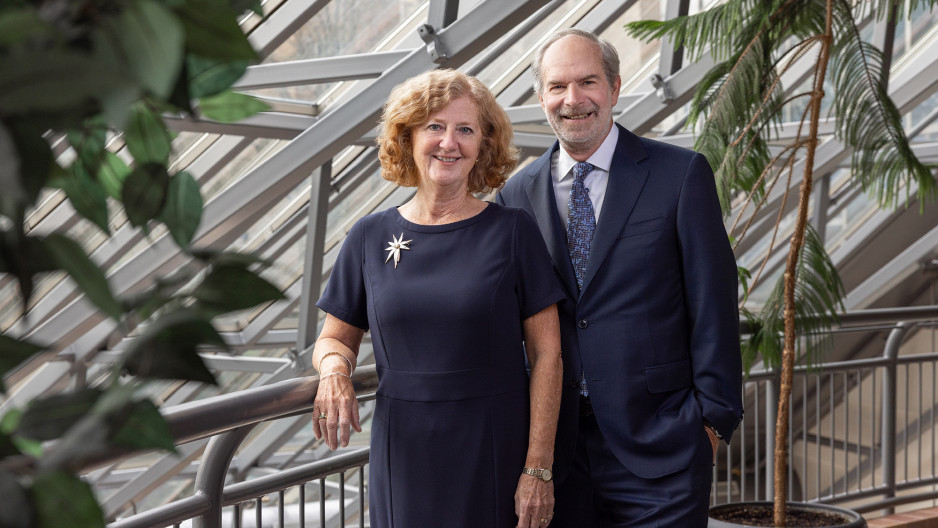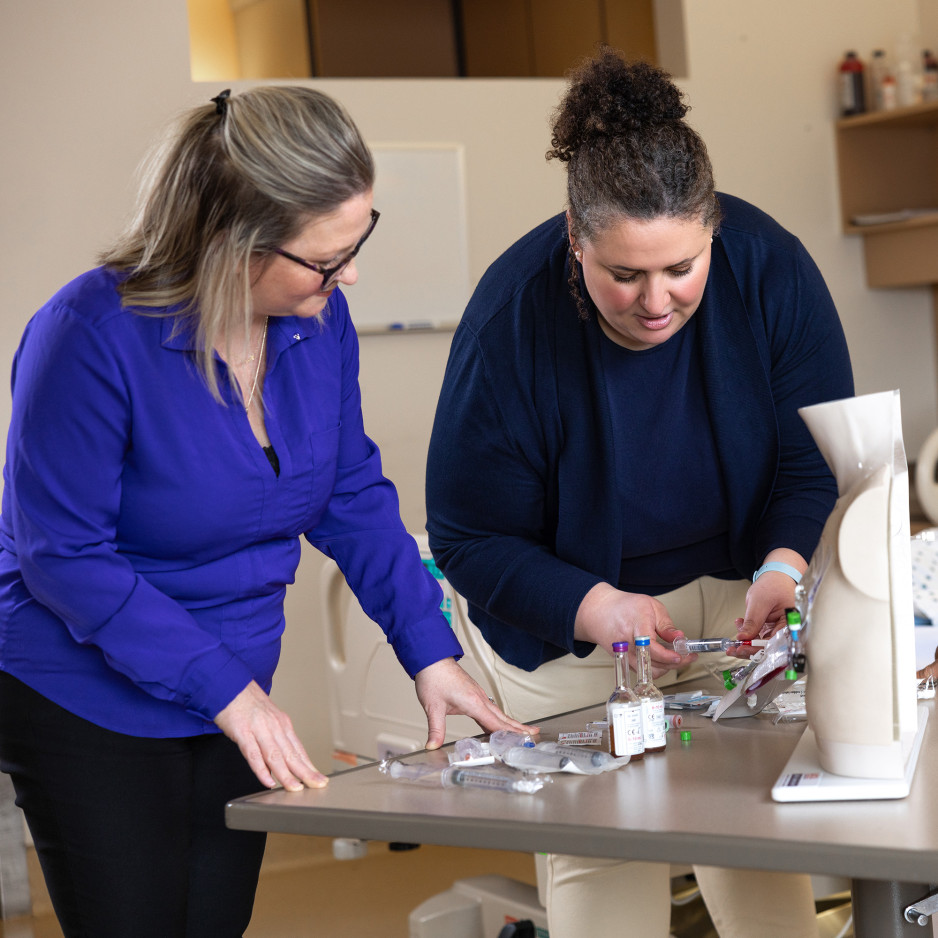Big gifts in small packages
For 17 years, Anne Toal and Paul Brisson have been supporting the purchase of modest items that deliver an immediate impact on patient care.
Anne Toal was a newly-minted Parkwood Foundation Board member in 1992 when a funding request arrived: staff had identified a research project to enhance the treatment of wounds and bedsores.
“We gave them a modest grant and they came up with some wonderful strategies that they ended up implementing at Parkwood and passing along to other long-term care organizations,” says the London resident and retired Canada Life vice president and chief compliance officer.
“It was truly gratifying to know that a small amount of money could do so much good.”
Anne remembered that instance 15 years later when she and her husband, Paul Brisson, the retired CEO of Highstreet Asset Management who also served on the Parkwood Foundation and St. Joseph’s Boards, created their own fund to support patient care needs at the hospital.
The Anne Toal & Paul Brisson Fund for Patient Care Needs at Parkwood Institute provides annual funding for items that deliver an immediate impact on the quality of life and care of patients, from wheelchair cushions to physiotherapy equipment, to large wall clocks that help keep patients time-oriented.
A list of priority needs is identified by front-line staff and each item typically costs no more than $2,000.
“These are smaller things that would never get to the top of the hospital’s capital budget,” Paul explains.
This year, the fund purchases included two specialized training mannequins to help nurses practice and enhance their skills in IV and central line management, something Parkwood’s nurses are challenged to do more often as patient needs become more complex, says nurse educator Reem Gray.
“If you’re early in your career or dealing with a difficult IV access point, it can be nerve-wracking for both the patient and the nurse. This allows us to do the coaching and get those nerves out of the way.”
Nurses who have used the mannequins are more confident, engaged and reenergized about their work, Reem says. “Ultimately, that’s why we’re here. We want to see nurses advancing their skills and providing better care. Gifts like this make that possible.”
That’s music to Anne’s and Paul’s ears.
“We’re really just interested in having an immediate impact on people’s lives rather than setting aside funds to be used some
time in the future,” Anne says. Paul agrees. “It’s important to support the big-ticket items like new state-of-the-art robotic equipment, but we should never forget the smaller things. They can have a really big and immediate impact.”
"These are smaller things that would never get to the top of the hospital’s capital budget.”
– Paul Brisson

